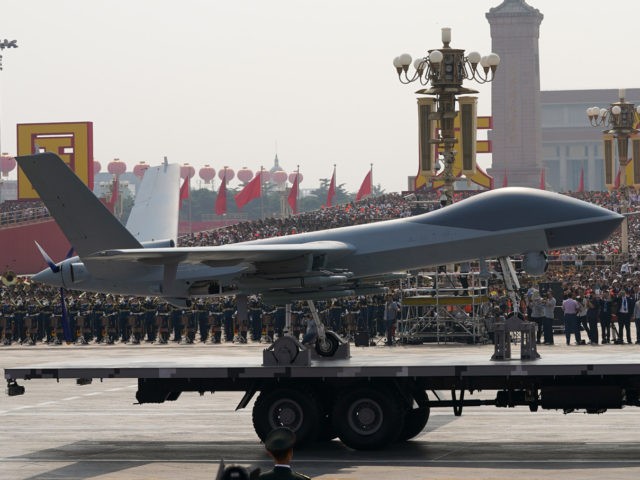A Chinese university with links to the nation’s army is jointly running a number of engineering courses in the UK involving mandatory modules on Mao Zedong and military training.
Queen Mary University — which is part of the University of London — is working with the Chinese Northwestern Polytechnic University (NWPU) to provide courses that educate Chinese Students in engineering, military training and socialist ideology.
NWPU has been described as being involved in the “development of unmanned aerial vehicles, autonomous underwater vehicles and missile proliferation projects” by US authorities.
According to a report by The Telegraph, the US Department of Commerce has also designated NWPU on its Entity List, banning US universities and companies from sharing certain technical information with the Chinese institution.
NWPU reportedly received over ¥420 million since its founding for its national defence science and technology key laboratory for unmanned aerial vehicles.
Queen Mary University (QMU) is running a number of programs in conjunction with NWPU, including undergraduate degrees in Material Science and Engineering, as well as Polymer Materials Science and Engineering.
Both courses are open only to students who are Chinese nationals.
According to the “Education Plan” for the Material Science and Engineering course on the QMU website, students will partake in courses surrounding mathematics, as well as on the behaviour and properties of materials.
Students enrolled on the course, however, will also be required to take a number of classes on “ideological and political theory”.
These modules include the likes of “Marxism General Principle”, “Fundamental of Mao Ze Dong Thoughts”, and “Ethics and Fundamentals of Law”.
Also included within the Engineering degree are mandatory modules on “Military Theory” and “Military Training”.
Commie Cash: Cambridge University ‘Infiltrated’ by Chinese Tech Giant Huawei https://t.co/vkwgJPxJrk
— Breitbart London (@BreitbartLondon) September 14, 2021
Speaking on the matter, Isabel Sawkins, a research fellow at the Henry Jackson Society, expressed shock over the collaboration.
“It’s one thing for a university to risk inadvertently sharing technology with very high-risk foreign institutions but to mandate that pupils studying for material sciences degrees take modules on Communist Ideology and Military Theory is an outrage that administrators must have been aware of,” Sawkins said, according to The Telegraph.
“It is shocking that Queen Mary, which is obligated to promote academic freedom, allowed this to happen and it must now urgently investigate this matter,” she continued.
Sawkins is far from the first person to have taken notice of the growing links between universities in the UK and China.
Over a dozen universities in the UK were under investigation by the security services over their relationships with the Chinese Communist Party according to a report published early last year.
The investigations had to do with what was described as a “new gold rush” of Chinese money entering the institutions.
At least £40 million has been dumped into UK universities by Chinese companies linked with the CCP since 2015, according to the Conservative party China Research Group, with Cambridge in particular having been accused of being “infiltrated” by tech giant Huawei, which is headquartered in Shenzhen.
The company had been previously banned from working on the UK 5g network over fears related to the nation’s national security and economy.
Speaking to Breitbart London in October former Conservative Party leader Iain Duncan Smith said that UK universities were in danger of being “naive” when it came to Chinese money.
“I think the Chinese have targetted British Universities because they’re so heavily involved in technological development including some military and secure stuff,” Duncan Smith said. ” There’s no question that universities in the UK — I think — have become overdependent on Chinese money.”
The ex-Tory head also criticised China’s system of Confucius Institutes.
“They’re very much there as an organ of the state,” he said, also claiming that they “seem to spend an awful lot of time following Chinese students and reporting back” to China.
Exclusive: Top Tory Says Invest in British Workers Instead of Relying on ‘Cheap’ Chinese Products https://t.co/z8mqg8Z4zm
— Breitbart London (@BreitbartLondon) October 6, 2021

COMMENTS
Please let us know if you're having issues with commenting.